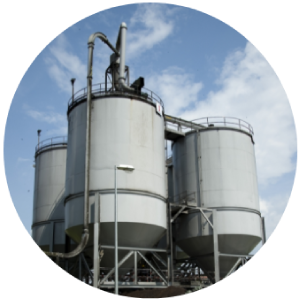Reimagining Plantations
Producing More with Less to Stop Deforestation
A step-change in increasing yield has the potential to allow our entire industry to meet the global demand for vegetable oils without expanding into forests. Back in 2009, we set out to take oil palm genome mapping to the next level. Using our research on the genome sequence, we initiated a genetic testing programme of palms representing the entirety of our breeding population.
With over a decade of hard work, applying large-scale data analytics to complete 80 million genetic tests for 80 thousand individual palms, we produced our latest higher-yielding seed – the GenomeSelect™!
In 15 to 20 years, once all our Malaysian plantations have been planted with GenomeSelect™️,
we can produce 300,000 tonnes of extra palm oil to feed 15 million people.
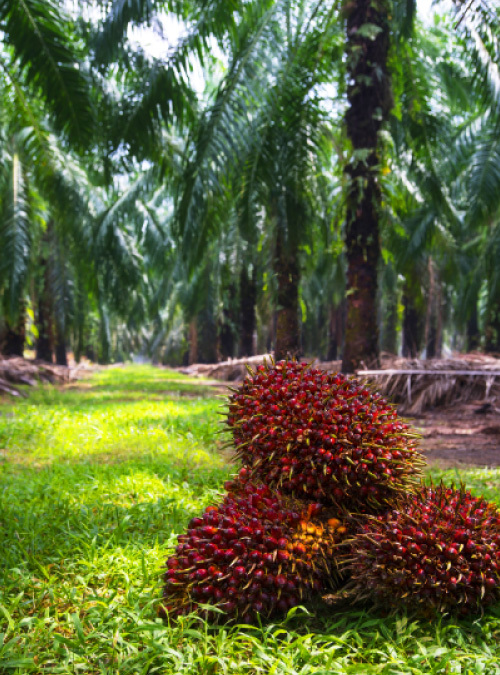
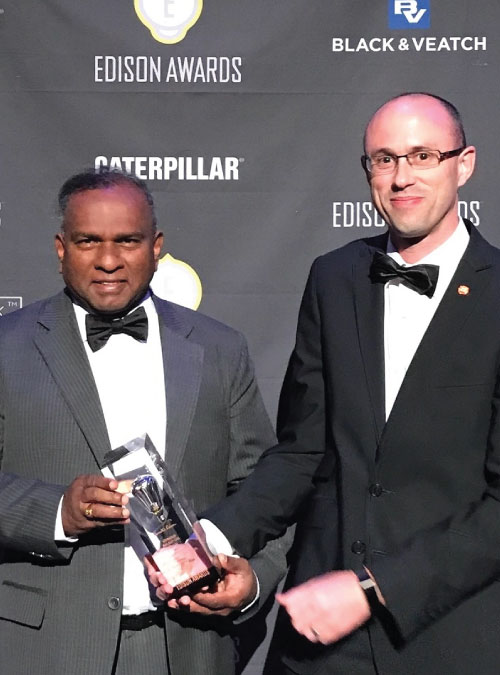
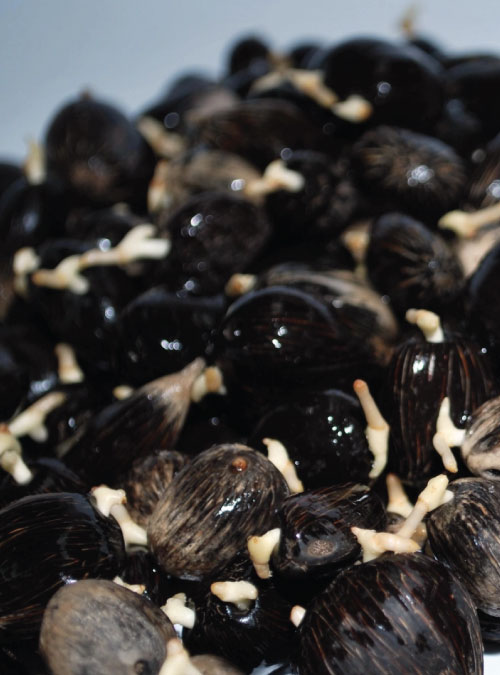
Publishing our Research on the Oil Palm Genome Sequence
- Over 10 years of research and RM150 million of investment in R&D and establishing one of the biggest genotyping labs in Southeast Asia.
- 80% more detailed than any publicly available findings.
- Clearer route map to identify genetic markers for other crucial oil palm traits, including climate resilience and disease resistance.
- Relevant to increasing yield beyond palm oil for other palm industries such as dates and coconut.
We are Listening to What our Palms are Telling us!
Do you talk to your plants every day? Now imagine listening to them and understanding what they have to say. We are able to do just that thanks to our Precision Agriculture innovations.
By replacing traditional GPS-based mapping with drones and satellite imaging technologies, mapping our plantations has become much faster and more powerful. We are able to focus our attention on the needs of each palm in Sime Darby Plantation. Knowing where to apply our efforts in a targeted and efficient way makes all the difference.
Here are some other examples of how we are utilising this innovation:
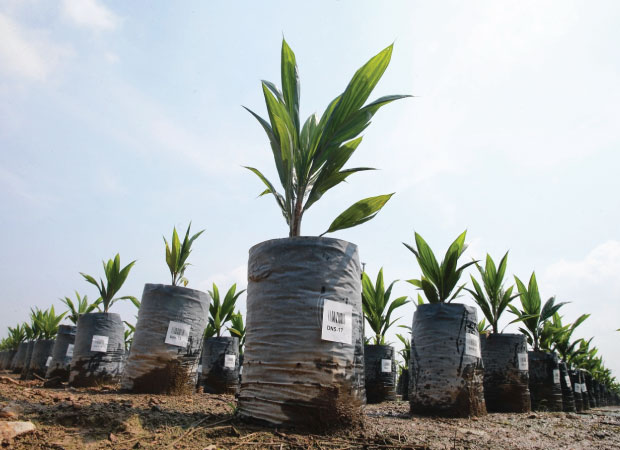
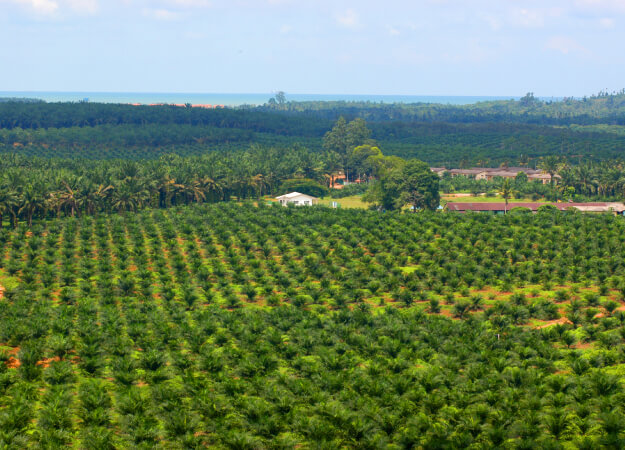
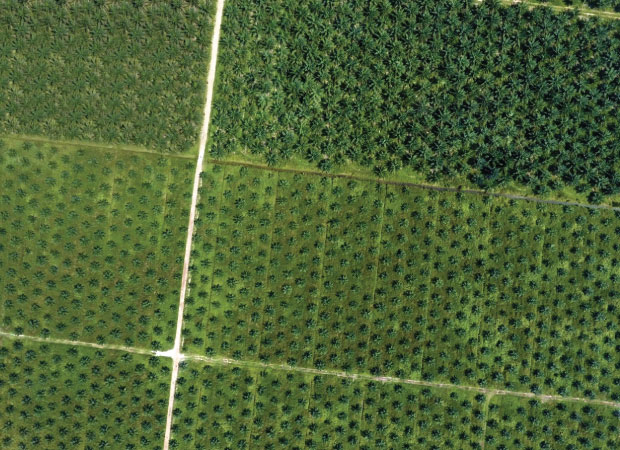
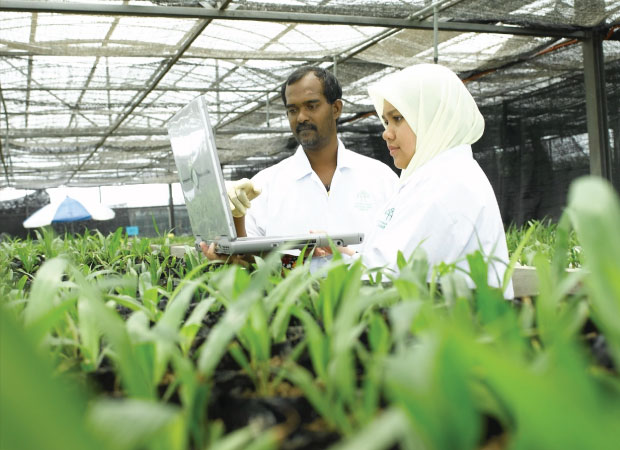
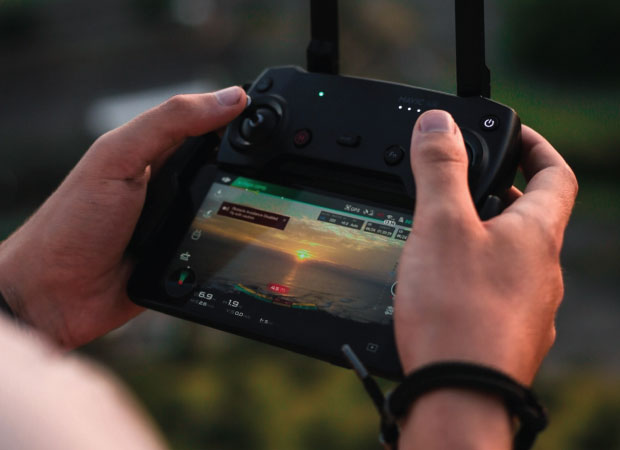
Mechanisation, Automation and Digitalisation
The current industry average of land-to-man ratio is 1:8 or one worker for every 8 hectares (ha).
With mechanisation and digitalisation, we have brought our ratio to 1:12.4 ha.
We aim to achieve 1:17.5 ha by the end of 2024.
By Reimagining Plantations we are successfully mechanising, automating, and digitalising our operations. We are determined to reduce our dependence on manual and menial labour. We are making work in our plantations more sophisticated and less laborious.
We are now putting all our effort into improving our ratio further.
Click HERE to read more about our announcement on this broadscale initiative.
Look at some of the latest machines that we have developed:
Mechanical Buffalo with Scissors Lift (MBSL)
This machine evacuates Fresh Fruit Bunches directly into a 10 metric tonne bin.
Tested and evaluated by the Standard and Industrial Research Institute of Malaysia (SIRIM) to ensure the safety of on-ground operators, the MBSL can carry at least 600 kg whilst moving steadily, without overturning on different surface conditions and topographies!
Highly efficient, our MBSL covers 18ha a day.
The Immature Herbicide Sprayer (ImHS)
A herbicide sprayer for circle spraying in immature areas.
The machine reduces our labour needs by 5 people per day as it covers 15 ha/day as compared to 3ha per worker when it was done manually. It has contributed to 38% and 67% estimated cost and labour reduction, respectively.
Mechanical Buffalo with Grabber (MBG)
The MBG comes with a grabber arm to carry out the Ground-to-Bin evacuation of heavy fresh fruit bunches (FFB).
Highly efficient, the MBG eliminates the need for an operator to get off the machine to collect the FFB and it directly transfers FFB into our 10 MT metric tonne bin instead of smaller multiple bins.
The machine covers up to 20ha/day.
The Azman Sri Pulai (ASP) Herbicide Strip Sprayer
An in-house machine developed by our very own people for mature areas.
Used in mature oil palm areas, it is ideal for terraces of less than 15-degrees. It reduces our manpower needs by 3 workers per day as the machine has a coverage of 8 to 9 ha/day compared with only 3 ha/day when the work was done manually. With this machine, we can reduce our costs by 63%.
The Hasrul Fertiliser Lift (HFL)
Mechanised Terrace Fertiliser Applicator (MTFA)
The HFL and MTFA are used for fertiliser application in mature areas that are flat, undulating or terraced.
Each machine reduces manpower by 4 workers per day as it has a coverage of 8 ha/day, compared with only 2 ha/day when the work was done manually.
The ST101 GEO Strip Sprayer
ST Geo is introduced to support Upstream Malaysia estates in dealing with the acute labour shortage.
The application is for strip spraying in mature areas and has the potential to reduce labour needs at a ratio of 1:5. Currently, SDP has deployed 71 units of ST Geo to estates in Upstream Malaysia.
Drone Technology
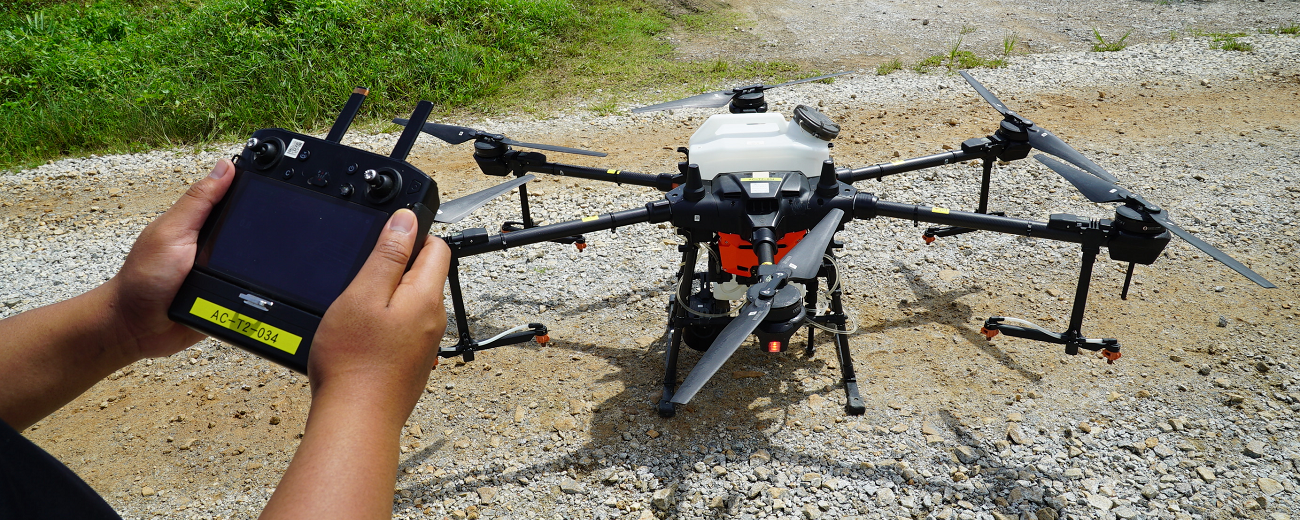
When first introduced to the world, drones were toys for the big boys who loved photography. Today, these little flying machines have been redesigned and developed for precision agriculture applications.
Also known as the Unmanned Aerial Vehicles (UAV), our drones are equipped with high-tech cameras. They make it easier for our workers to conduct mapping, imaging and data collection of our plantations to manage our palms.
Our drones are also equipped with sprayers that allow our workers to replace the labour-intensive pesticide spraying activities with higher precision over a larger land parcel at lower costs.
We have collaborated with several drone manufacturers to research the use of UAV Point-to-Point (UAV PTP) Sprayers for precision spot spraying to control the Rhinoceros Beetle pest. Based on the success of the research, we have deployed the UAV PTP technology over 2000 ha in our estates, reducing our dependency on workers to conduct the manual spraying. The UAV PTP has the advantage to fly autonomously and spray palms at hilly and terrace areas, a task that would be difficult for our workers.
This is just a fraction of the possibilities these machines are capable of. SDP is actively scouting for better drones and other technology solutions to further reduce our reliance on manual labour. We are collaborating with start-ups and other companies to find answers to oil palm harvesting such as the UAV, Unmanned Ground Vehicle (UGV), robotics and other cutting mechanisms such as laser and mechanised cutters.
The Point-To-Point (P2P) Drone Sprayer
This large volume capacity Unmanned Aerial Vehicle sprayer delivers extended hectarage precision spraying of pesticide based on crown tracking, using Artificial Intelligence.
It delivers a 70% target labour reduction and covers 8 ha/day, compared to just 3 ha/day when done manually.
The Nursery Drone Pest and Disease (P&D) Sprayer
This drone sprayer has an 88% target labour reduction for Pest & Disease operations at nurseries.
Zero-burning Replanting Technique
- The act of open burning is simply dangerous for our environment, property, and safety. In fact, open burning is one of the main causes of the annual haze issue in Southeast Asia that has affected all of us. It poses a business risk for companies like ours that have invested time and effort to cultivate our estates.
- Sime Darby Plantation has had a Zero Burning Policy for over three decades. In 1985, we commercially introduced the Zero-burning Replanting Technique to replace the traditional slash-and-burn method of clearing land.
- It has become the most environmentally-friendly standard of clearing land for oil palm replanting today.
- The technique won the United Nations Environment Programme’s (UNEP) Global 500 Roll of Honour for Environmental Achievement at the Rio Earth Summit 1992.
Click here to find out more about our Zero-burning policy and haze management initiative.
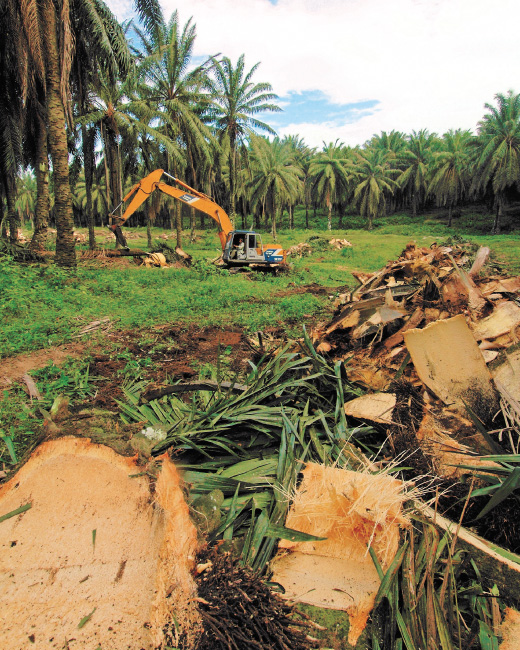
Preserving our Soil, Reducing our Carbon Footprint and Practicing Sustainable Pest Management
Our priority has always been about protecting our assets from the ground up, and this includes preserving the nutrients in our soil to encourage organic microbial growth for healthier palm fruits. That means we need to reduce the amount of nitrogen fertiliser and pesticides wherever possible. By doing this, we also reduce our carbon footprint and create a safer working environment for our field staff.
Our Crop Protection Research Section has developed environmentally friendly and economically viable pest and disease control methods to protect our palms. We use biological controls, creating an ecosystem in our plantations that works to regulate itself. Our Integrated Pest Management (IPM) approach, as we call it, are employed across all our plantations.

Barn Owls
Meet our most celebrated resident guest – Tyto Alba! We build nesting boxes every 10 hectares in our estates to encourage these barn owls to populate the plantation. These cute tenants help manage the rat population in our estates - our most common pest. With Tyto Alba flying around, we are able to significantly reduce the rat infestation – which means fewer rounds of rat baiting and lesser damage to our fruit bunches.
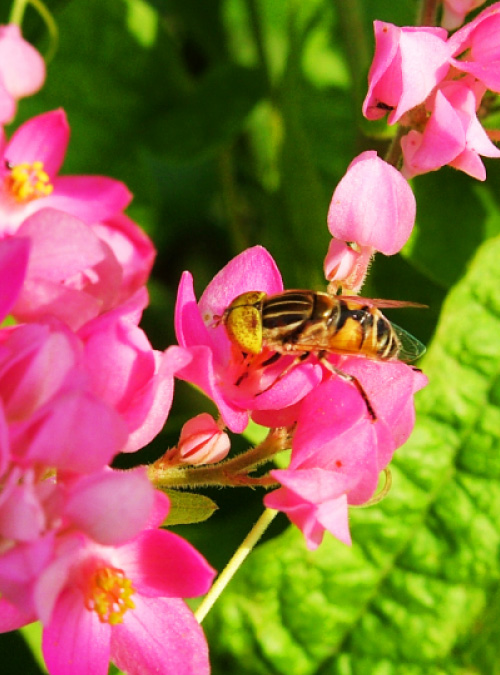
Beneficial Plants
While driving along our estates, visitors will notice strips of attractive plants at the fringe of each oil palm row. These plants have been planted with an ulterior motive-to curb the population of the bagworm, a leaf-eating caterpillar that damages palm fronds.
By growing these beneficial plants, we encourage the propagation of the bagworm’s natural enemies, the predators and parasitoid insects that attack and suppress bagworm outbreaks. Cultivated in the right ratio, these plants protect our oil palms from leaf-eating caterpillar pests within a 120 to 450-metre radius.
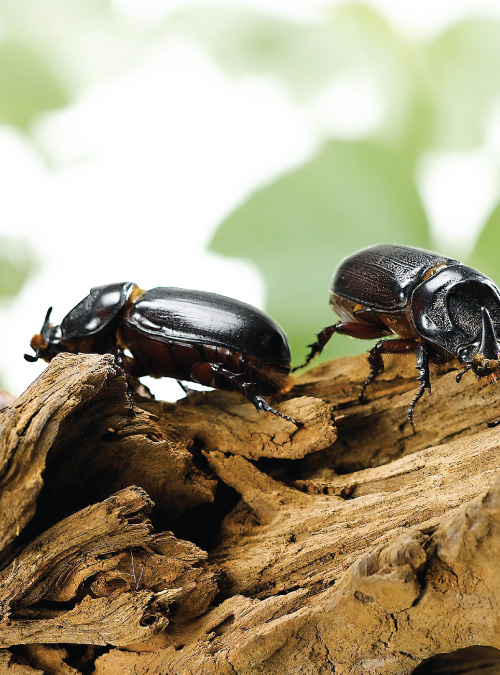
Rhinoceros Beetles
The first two years after the replanting exercise in an estate is crucial for the on-ground team to monitor another pest, the Rhinoceros Beetle.
These insects infest the newly replanted oil palm fields due to our Zero-burning replanting method, where old trees are cut down and left to decompose. Decaying organic matters such as these are favourable and become a breeding ground for this beetle.
We have explored and discovered the use of the Metarhizium Entomopathogenic fungi that we formulate into a biopesticide to control the Rhinoceros Beetle pest. The biopesticide is applied on the decomposing trunk chips that will infect and kill the Rhinoceros Beetle grub. As a result, we minimise the use of chemical insecticides and protect our palm from damages.
Food Science
The experienced scientists in our Global Product Innovation and Development (PID) Team continue to innovate products to help our customers succeed in their Oils and Fats applications. With three Global Product Innovation and Development Centres in Asia, Africa and Europe, and seven Centres of Excellence, our team is responsible for developing new products and innovative solutions and providing technical advice to respond to evolving consumer needs and megatrends.Our Strategic Centres of Excellence include:
Food Safety
Producing a multi-use vegetable oil that is applicable as a frying ingredient, baking component and even in infant formula means constantly experimenting to ensure food safety is a top priority-nay, necessity. The most common concerns involving palm oil are co-contaminants created during the processing and refining of edible oils called 3-MCPD, Glycidyl Esters (GE) and trans fatty acid.
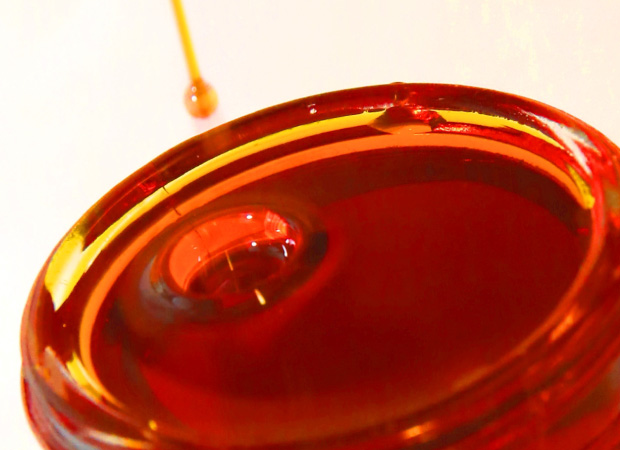
Free Fatty Acids
Free Fatty Acids (FFA) develop through the lipase activity caused by the bruising of oil palm fruits. The delay in collecting loose fruits, multiple handling of fresh fruit bunches, long harvesting intervals, and the long transportation journeys can further facilitate this increment.
Increased FFA levels jeopardise oil quality, prompting organisations like the Palm Oil Refiners Association of Malaysia to set specifications below 5%.
This criterion helps ensure all palm oil suppliers, including Sime Darby Plantation (SDP), implement appropriate mitigation methods to adhere to this standard safety requirement.
SDP has successfully met these health and safety standards by ensuring our fruits reach the mills within 24 hours.
3-MCPD (3-monochloropropane1,2 diol Ester (ME)), Glycidyl Esters (GE)
Significant amounts of fatty acid esterified ME and GE were reported in refined vegetable oils, especially in palm oil.
ME and GE are processing contaminants that form in refined vegetable oils when they undergo chemical changes during processing.
The formation of these process contaminants is attributable to chlorine levels for ME and destabilisation of the diglyceride, which converts to GE during processing at high temperatures (>230 °C), particularly in the deodorisation step.
However, at Sime Darby Plantation, we are cognisant that these are concerns that need to be addressed and have been actively looking at measures to resolve this issue.
We identify and stop possible sources of contamination and implement processes that are able to remove contaminants.

Mitigation From Palm To Product
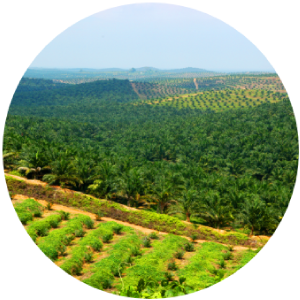
Plantation
Optimise fruit quality and purity at all stages from field to the product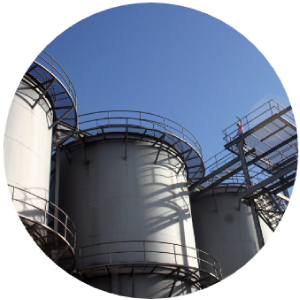
Mill
Improved mill practices